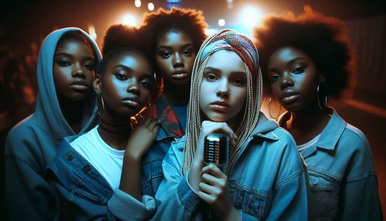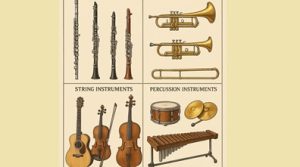Gender Inequality in the Music Industry (2025)
Gender Inequality in the Music Industry (2025)
The music industry remains essentially male-dominated. To the average audience, it may not appear so since many female artists emerge as top-charting artists.
Yet, when analyzed from the industry’s view, data show that women are truly excluded from consideration.

Behind the Charts: The Gender Disparity/Gender Inequality in the Music Industry
The music scene is still male-dominated. This shows that the number of female artists is declining through the years.
Today, women constitute less than one-third of the total artists: 12.6% of songwriters and less than 3% of producers are represented on the charts between 2012 and 2020.
The Emotional Toll on Aspiring Female Artists
Any female artist faced with such numbers would be left disheartened. The enormity of the imbalance in male and female representation is starting to put off even the new entrants.
Many women do face these systemic barriers even before they build up their careers.
Changing the Narrative: A New Generation Emerges
Fortunately, many strong female artists are presently gaining ground in the industry.
They lead the way for younger artists with great potential to counter-balance these statistics in a more favorable direction in the future.
Their presence and persistence are holding out hope for a new culture of inclusivity and diversity in music.
Discrimination is reportedly experienced by half of the women in music.
Ongoing Issues in a Male-Dominated Environment
It reports harassment in the workplace as experienced by one in three women in the music industry, with many pointing to it as a key career barrier. The harassment is more prevalent when compared to that of men.
Gender Inequality in the Music Industry: Fresh Data from an Initial UK Musicians’ Census
The census counts over 6,000 music industry professionals, among whom 2,526 are women.
The report shows that only 24% of DJs in the UK are women, and they are paid less than men from the outset.
Women are typically paid less than men, urging many highly qualified women to have shorter careers.
Just over a quarter (27%) of female musicians claim they do not earn enough from music to sustain a career, while that figure is 20% for men.
In general, women are paid 10% less than men, with average annual pay amounts of £19,850 for females and £21,750 for males.
“This tidal wave of revelations”: Voices Speak Out
The authors label this inequality an ‘alarming’ one and insist that women are confronted with structural barriers that are deep-rooted in the system of career progression.
“A commitment must be carried through by the industry, through active involvement, to ensure that history never repeats itself,” says Nadia Khan, founder of the music development non-profit organization, Women in CTRL.
The report was published together with a cross-party team of MPs investigating misogyny inside the music industry since June 2022.
Behind-the-Scenes Sexism
BBC Radio 1 DJ Annie Macmanus (Annie Mac) explains that harassment harassment and abuse are the norms in an “old boy” music industry.
She tells the council about a female photographer who lost a job after rejecting a male band member’s advances.
“She couldn’t have won,” Macmanus says. “If she had gone with him, she would have been fired for being unprofessional. And she didn’t want to go with him anyway.”
Misogyny Beyond the Microphone
Rebecca Ferguson, the singer and former X Factor participant, testifies that what she described in the music business is “The beginning of a much bigger concern.”
She says that she was bullied by her management company for trying to leave, staff were instructed to damage her relationships, and to ignore her calls from her children.
“‘When you earn as much money as you do, you do as we effing say’ is when I was told,” she recalls.
The Daily Grind of Harassment and Discrimination
Among the 51% of women alleging gender discrimination in the Musicians’ Census, cases like these abound.
- A DJ from the East Midlands shares that she was harassed and assaulted onstage and while traveling home at night.
- A young musician from London states that harassment has caused her confidence issues and anxiety while performing.
Gender Inequality in the Music Industry: Barriers Faced by Women in Music
The report also mentions other challenges specifically for women, which include:
Childcare Responsibilities
Since the birth of my daughter, I have had to turn down several jobs, due to a lack of affordable child care,” says the anonymous respondent.
Age Discrimination
When I started as a DJ, I didn’t look like the other female DJs at all. Now I’m older, and here’s yet another form of discrimination,” said a Scottish artist.
Gendered Roles in the Industry
The report illustrates the various aspects of stereotyping roles:
- 12% of engineers in studios are females
- 8% of rappers are female
- 24% of DJs are female
On the other hand, 59% of roles in classical music are played by female performers.
It’s Time for Action Accountability
According to Naomi Pohl, General Secretary of the Musicians’ Union, this is how these accounts go on to show how women in music are “held back.”
We have long championed better reporting around the pay gap and hope these census findings will propel the industry to action, be more transparent, and make change.”




